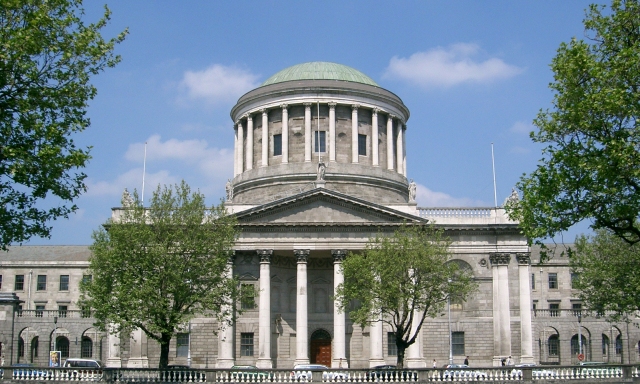Access to justice under threat by planning Bill, Committee hears

December 16th, 2019
The Government’s proposal to bring in more stringent rules for legal challenges over planning decisions poses a serious threat to citizens’ access to justice rights, a community law expert has warned.
Speaking during a hearing of the Oireachtas justice committee last week, Rose Wall, the head of Community Law & Mediation, raised concern with the Housing and Planning Development Bill 2019.
If passed, the Bill that is set to be brought forward by the Minister for Planning Eoghan Murphy TD would add new cost requirements and standing restrictions to bring Judicial Review cases over planning decisions.
While individuals can appeal local authority planning decisions to An Bord Pleanála, decisions made by the national planning authority can only be challenged through the courts, an already costly and time-consuming process.
The proposed Bill includes changes to cost rules and stricter grounds for citizens and environmental groups to bring a legal case. Environmental groups, for example, would have to be in existence for up to three years and have over 100 members to qualify.
The Bill also calls for a change in standing requirements so that applicants will have to show “substantial interest” rather than the current lower threshold of “sufficient interest” in order to bring a case.
They would also have to show that they are “directly affected” by a proposed development and must also show prior participation in the planning process by, for example, sending a submission on a live planning application outlining their concerns.
Such changes, Ms Wall warned, would “increase costs exposure” and make it more difficult for citizens and environmental NGOs to qualify to take cases challenging decisions that have an environmental impact.
“Environmental democracy and oversight is protected by EU Law and the Aarhus Convention and has never been so important as we grapple with the challenges posed by climate change,” she added.
Access to justice is accepted as a constitutional principle and a right under the European Convention on Human Rights without which, Ms Wall said, people are “unable to have their voice heard, exercise their rights, challenge discrimination or hold decision-makers accountable.”
“In the absence of access to justice, challenging incorrect decisions or unfair practices by an arm of the State or other bodies would be more difficult, more distressing or just impossible particularly for vulnerable groups.”
Ms Wall’s concerns about the Bill were echoed in recent weeks by environmental groups, local campaign groups, and others from the legal profession.

Costs concern for citizens
Critics have also questioned proposals in the Bill to row back on existing cost rules for environmental cases that are in line with international requirements that costs should “not be prohibitively expensive”.
The Bill would see a cost capping system put in place that critics say will make it prohibitively expensive for the public and environmental NGOs to take legal cases.
The high cost of mounting legal challenges in environmental cases is recognised by the European Commission, the EU Court of Justice and the Chief Justice as an issue in Ireland.
While citizens may qualify for cost support through the Civil Legal Aid Scheme, this support is not available to environmental groups that are “often operating within very limited means”, Ms Wall said.
She added that the scheme also “fails to adequately provide for access to justice” for citizens due to an “overly strict means test” out of touch with the reality of the cost of living.
In addition, she said, the Legal Aid Board itself is under-resourced, resulting in an average waiting time of up to 38 weeks for people to have their first consultation session with the board.
“This is simply too long to wait and can cause issues for those seeking legal remedies with strict time limits such as Judicial Review, which has an effective time limit of three months,” she added.

Flawed public consultation
The Government launched a public consultation on the Heads of the Bill last week with little to no fanfare and without informing environmental stakeholders.
Last week, the Environmental Pillar said that the format, timing, short deadline and poor advertising of the consultation “flagrantly disregards” our international, EU and national obligations for public participation on environmental matters.
The environmental coalition said that the failure to hold any consultation prior to developing the detailed Heads of the Bill was a big concern, as is the “very short deadline” of 23 working days during the Christmas holiday period when it is “not realistic to expect the public to engage”.
Attracta Uí Bhroin, the Environmental Law Officer at the Irish Environmental Network, said that the “appalling scheduling” of the consultation is “steam-rolling over public participation rights”.
Ms Uí Bhroin sent a letter to Mr Murphy last week urging him to extend the consultation on the Heads of the Bill that she said proposes an “extermination of environmental democracy and oversight”.
“The proposed Frankenstein-like monster legislation would kill off access to justice in Ireland, drawing from the worst practices elsewhere and putting them all together in a bid to obstruct the rights of citizens and concerned NGOs to challenge bad and unlawful planning decisions,” she warned.
[x_author title=”About the Author”]







